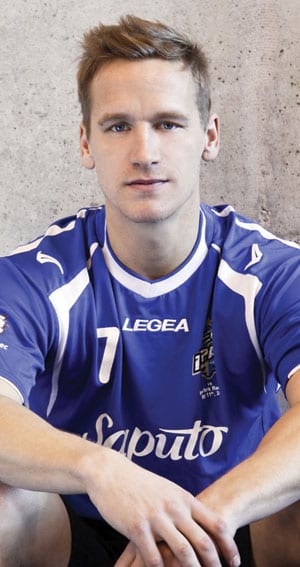BSA could learn something from Major League Soccer
Earlier this summer, after a supposed two-year, super-secret study by a group of unnamed people, the Boy Scouts of America announced that their next hike would take them all the way back to the 1950s. The Scouts vowed to deny their own law mandating values like courtesy and kindness by continuing to ban gays at every level of scouting, from the youngest Tenderfoot through the oldest administrator.
That portion of America not stuck in the 1950s reacted with outrage. Editorial writers tsk-tsked. Eagle Scouts returned their badges.
And Major League Soccer acted. Within days, president Mark Abbott announced that the league’s seven-month-old strategic partnership — including cross-promotions, “Scout Nights” at stadiums with discount tickets and player visits to local BSA troops — would not be renewed.
MLS cited “a variety of business reasons” for the alliance’s abrupt end. But the connection was clear. Since when does an organization go out of its way, seven months after its start, to announce that five months later a partnership will end?
This was not the first time the soccer league acted so decisively. In March, officials fined and suspended Dynamo’s Colin Clark for three games after the midfielder screamed “faggot” at a ball boy who was slow to toss him a ball during a game. Weeks earlier, the Vancouver Whitecaps gave Lee Nguyen a “formal warning” for tweeting the word “fag” to describe a teammate.
Soccer seems to be a sports world leader in many LGBT-related ways. The MLS team Chicago Fire has hooked up with Equality Illinois in a very visible way. Team reps marched with the organization’s float — and its “I Do” support marriage equality banner — during June’s Chicago Pride Parade. Players Gonzalo Segares and Jay Nolly showed up at an Equality networking cocktail party. Last month, the Fire donated a portion of ticket sales at their Pride Night to Equality Illinois’ Education Project.
Meanwhile Chivas USA sponsored Equality Night with a pre-game reception with the NOH8 campaign. The Los Angeles Gay Men’s Chorus sang the national anthem. The It Gets Better Project staffed a booth at Home Depot Center’s main concourse. Cheerleaders performed a halftime routine to “Born This Way.”
Soccer fans have started private efforts to get professional soccer players to publicly affirm their support for gay rights with a drive at Gay4Soccer.com. (The tagline: “Because soccer isn’t gay, but once in awhile it kinda is.”) The online petition, signed by scores of players (including national team members Carlos Bocanegra and Jay DeMerit, broadcaster Kyle Martino, Sports Illustrated senior writer Grant Wahl, and whole team fan clubs), says “sports are about fairness and equality, respect and dignity. Sports teach individuals how to strive and succeed, how to cope with success and disappointment, and to bring people together to achieve a common goal.” Take that, BSA!
Petition signers promise to reach out to LGBT people and make soccer “a welcome, inviting and inclusive place for everyone.”
It already seems to be. Late last year, David Testo quietly came out. He’d been in the closet as a player with the MLS Columbus Crew — and before that, when he helped the University of North Carolina win the NCAA Division I championship — but after moving to the Montreal Impact in the second division, most teammates knew. Testo said he felt comfortable with teammates and coaches, and they with him. That’s the kind of low-key coming-out tale the sports world is ready for, but scouting can’t understand.
It’s actually easy to understand why the North American soccer world supports LGBT issues so fervently. Soccer is a game that celebrates independent thinking. Unlike most other sports, where coaches call timeouts and diagram plays — particularly football, where every block and pass pattern must be executed to perfection — soccer players constantly figure out problems on their own. They don’t need to be told what to do; they know the right thing to do, and they do it.
Soccer is also an international game. Players are used to teammates with different nationalities and accents who do little differently. Sexuality is just one more difference to appreciate.
The Scouts’ oath includes the words “physically strong, mentally awake and morally straight.” But it’s Major League Soccer — and millions of fans — that truly walks that talk.
— Dan Woog
This article appeared in the Dallas Voice print edition September 28, 2012.
















